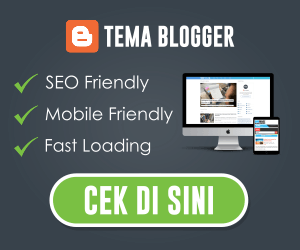Bits: Girl Power Wins at Google's First Science Fair
@nytimes The New York Times Bits: Girl Power Wins at Google's First Science Fair By CLAIRE CAIN MILLER If Google ’s first science fair i...
https://forumberitajakarta.blogspot.com/2014/01/bits-girl-power-wins-at-google-first.html

@nytimesThe New York Times
Bits: Girl Power Wins at Google's First Science Fair
If Google’s first science fair is any indication, the top scientists of the future will be women. Google has announced the fair’s winners, and they are all girls.
Shree Bose, age 17, from Fort Worth, Tex., won the grand prize for developing a way to improve ovarian cancer treatment for patients who have developed a resistance to chemotherapy. Naomi Shah, 16, from Portland, Ore., found ways to improve indoor air quality and decrease people’s reliance on asthma medications. And Lauren Hodge, 14, from Dallastown, Pa., researched the effects of different marinades on potential carcinogens in grilled chicken.
“As a girl, to see that my gender actually is going to come into this field that’s been so dominated by men is exciting to me, and to be a part of that is even more exciting,” Ms. Bose said in an interview.
Surprisingly for Google, a computer science company, the winners each did bioscience projects. But the entries were wide-ranging, as was the science fair. Teenagers anywhere in the world could enter the fair in areas from computer science to space exploration. Unlike other science fairs like those of Intel and Siemens, students entered online, instead of presenting their projects in a school gymnasium.
Ten thousand students from 91 countries entered 7,500 projects in the science fair, including transforming recycled cans into solar ovens, building robotic prosthetic limbs and developing 3-D indoor navigation for blind people. For a clue about what tomorrow’s scientists care most about, the most popular category was earth and environmental sciences.
Google invited 15 finalists to its Mountain View, Calif., headquarters this week. The winners received scholarships, internships at Google, CERN and Lego, and for Ms. Bose, a trip to the Galapagos Islands with National Geographic Explorer.
Google started the science fair to promote curiosity about science and experimentation among students, as one of the company’s several education projects. It was also a marketing tool for Google Apps, which compete withMicrosoft and other companies. Google hoped to introduce students to Google’s Web products, like Google Sites, App Inventor and SketchUp, so they might continue to use them in college and the workplace.
That plan may have paid off. Ms. Bose said that she started her project planning to “cut and paste it onto a board” to present at an in-person science fair. But entering it online was much easier, she said. She used Google Sites, Docs and Scholar, and plans to continue to use the services.
Promoting women in science was not an explicit goal of Google’s and gender did not play a role in the judges’ decisions, said Vint Cerf, a Google Science Fair judge and the company’s chief Internet evangelist.
“But I was secretly happy to see that happen, because for ages men have dominated the science field, and in many cases women who have done excellent work have been ignored,” Mr. Cerf said in an interview.
In Silicon Valley, where men vastly outnumber women, Google has consciously tried to recruit more women. One way it did that was to hire women early on, like Marissa Mayer in engineering and Susan Wojcicki in ad sales, because the founders thought women would be more likely to join the company if they saw other women working there.













.jpg)

